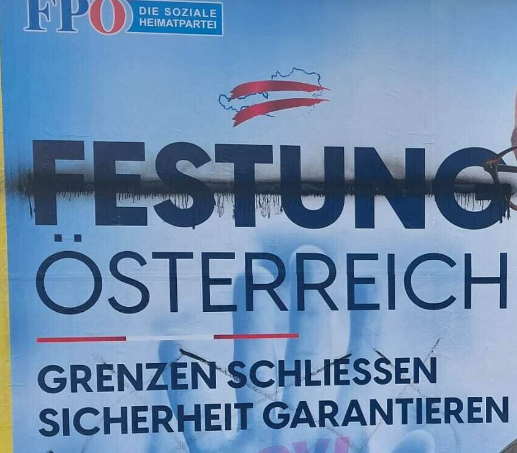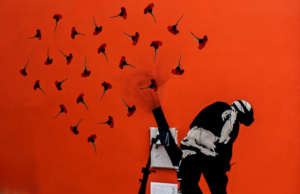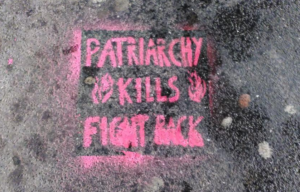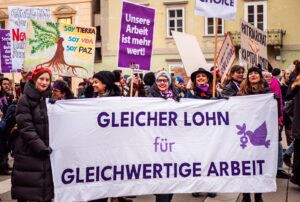Austria’s right-wing and authoritarian parties are trying to weaponise border control and immigration and declare certain groups that they themselves have marginalised a threat to national security, all while blocking and sabotaging pan-European efforts to relocate refugees across the continent.
At the end of January, state parliament elections took place in Lower Austria, the country’s second most populous province after Vienna. It came as little surprise that the centre-right People’s Party (ÖVP) saw its share of the vote fall by 10%, while the far-right Freedom Party (FPÖ) increased its vote share by the same amount. [Editorial note: The FPÖ also gained votes in last Sunday’s regional elections in Carinthia.]
The results were predictable because the People’s Party – although they would prefer not to acknowledge it – has been embroiled in numerous corruption scandals in recent years. The Freedom Party, on the other hand, can claim to have expelled those implicated in the 2019 Ibiza scandal, when the party’s former leader Heinz-Christian Strache was filmed attempting to trade public contracts for party donations. And even before this story broke, the People’s Party was struggling to portray itself as a credible party of government, which could arguably be due to its decision to mainly target business owners and farmers (i.e. large-scale landowners). The only populist element is the power exercised by the party’s increasingly authoritarian leadership, who make the Freedom Party look like an ill-disciplined bunch.
Sadly, both parties are obliged to make public statements and discuss certain issues. And it turns out there is only one issue that they can get away with coming back to time and again without offering any solutions that may prove unpopular: asylum law and migration. In Austria, a blurring of terms has become so prevalent in the debate surrounding this issue that, during discussions, even the ruling party’s coalition partners, the Greens, are incapable of properly distinguishing between those applying for asylum and those to whom it has already been granted, and between those crossing the border into Austria without a visa and those (and their families) who have already been granted permission to enter.
Then, at the end of January, there was a confrontation between Petar Rosandić (founder of refugee aid organisation SOS Balkanroute), Ewa Ernst-Dziedzic (the Green Party’s spokesperson on human rights) and Gottfried Waldhäusl (FPÖ politician and member of the Lower Austrian government for animal welfare, municipal medical officers, asylum and guaranteed minimum income) during a panel discussion on Austrian TV programme Pro und Contra. A school pupil in the audience said, “If you had implemented your policies years ago, this entire class wouldn’t be at school in Vienna because half, well, in fact, everyone has parents with a migrant background and wouldn’t be sitting here now.” Waldhäusl responded with: “If we had been able to do it, Vienna would still be Vienna.”
In the week that followed, the Austrian public responded with outrage and some expressions of solidarity similar to those already shown during protests against recent cases involving the deportation of children (i.e. the pupil and her class were invited to attend the Austrian Parliament, there were a few demonstrations and numerous press releases condemning Waldhäusl’s comments), but there was almost no mention of how Waldhäusl’s words had become almost normal in the current climate.
During the election campaign, Freedom Party leader Herbert Kickl was featured in a military-style anorak on posters bearing the slogan “Fortress Austria”. He then also voiced his support for Waldhäusl, together with other prominent figures from the Freedom Party, claiming that his statement was true and accurate. The People’s Party also appears keen to place plenty of emphasis on border control and immigration, all while blocking and sabotaging pan-European efforts to relocate refugees across the continent.
The ÖVP frequently uses its power as the ruling party to play to the gallery by controlling the party’s message and posturing on the European stage. One example occurred last December, when Austria voted against Romania and Bulgaria joining the border-free Schengen zone. The People’s Party leadership did not argue that the countries had failed to meet the necessary criteria – they each had the backing of the European Commission – but instead justified the decision by making what felt like the fifth appeal to the EU to, at long last, follow Austria’s vision for the bloc’s border policy.
In times of uncertainty, right-wing and authoritarian parties (in Austria, both the FPÖ and the ÖVP can be considered offshoots of a trend towards fascism) attempt to offer the population security by further marginalising and controlling already ostracised groups. Corruption scandals, the Covid-19 pandemic and the impacts of the Russian invasion of Ukraine cannot be controlled; immigration, on the other hand, supposedly can. And so we see a continuation of a phenomenon that former Austrian Chancellor Sebastian Kurz had already observed back in 2018: in several interviews, he cheerfully remarked that certain ideas that were still considered extreme in 2015 could now be discussed “objectively”. Yet this cultural shift does not confirm the prescience of those who, year after year, call for brutal measures against refugees at the EU’s external borders. Rather, it is a sign that even in times of crisis, the aim is no longer to offer humanitarian support to those in desperate need, but to demonstrate strength by declaring groups that those same political parties have done so much to marginalise a threat to national security.
Originally published in “antifa” magazine.



